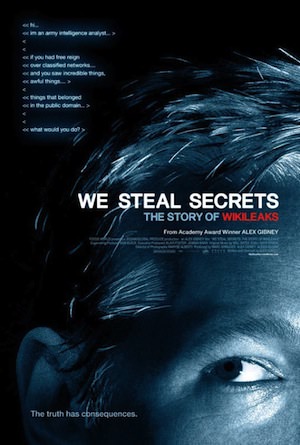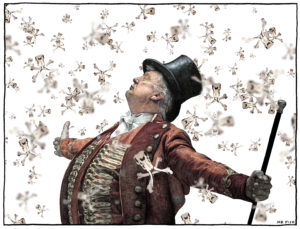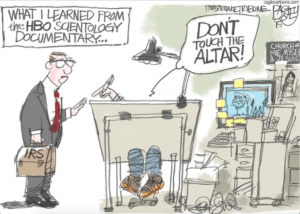Bias Alleged in WikiLeaks Documentary ‘We Steal Secrets’
Academy Award-winning filmmaker Alex Gibney's new documentary on Julian Assange and Bradley Manning focuses "on character assassination rather than conscience" and portrays "whistleblowing as something that is deviant," writes Jesselyn Radack of the whistle-blower protection group Government Accountability Project.
Academy Award-winning filmmaker Alex Gibney’s new documentary on Julian Assange and Bradley Manning focuses “on character assassination rather than conscience” and portrays “whistleblowing as something that is deviant,” writes Jesselyn Radack of the whistle-blower protection group Government Accountability Project.
The film makes use of all of the U.S.-government approved caricatures of WikiLeaks founder Julian Assange and admitted source Pfc. Bradley Manning. “The attacks range from the petty (Manning is effeminate and Assange is a hacker-hero enamored with his newfound rock star status), to the simply bizarre (Assange is out to impregnate unwitting women and spread his seed all over the planet) and impossible (during the era of “Don’t ask, don’t tell,” while serving in the military, Manning was taking hormone therapy),” Radack writes.
In the public battle over Assange and Manning’s righteousness and credibility, director Gibney, who has given us enlightening films such as “Enron: The Smartest Guys in the Room,” “Casino Jack and the United States of Money” and “Taxi to the Dark Side,” plays the role of “retaliator” with this film, argues Radack, perpetuating “the usual smears that the government levels against whistleblowers and their allies: that they are vengeful, unstable, or out for fame and profit.”
Radack continues: “Taking a page out of the government playbook, the film focuses on the person rather than the substance of his complaints. It attacks their credibility rather than answering their criticism.”
Suggested Gibney about whistle-blowers in general during a Daily Beast interview to promote his film: “I think [Bradley Manning] raises big issues about who whistle-blowers are, because they are alienated people who don’t get along with people around them, which motivates them to do what they do.”
— Posted by Alexander Reed Kelly.
Your support matters…Jesselyn Radack at The Guardian:
Legally speaking, a whistleblower’s motive is irrelevant. As long as a government employee discloses what he or she reasonably believes evidences fraud, waste, abuse, illegality, or a danger to public health or safety, it matters not a whit if the revelation is beneficent, self-aggrandizing, naïve, or for financial gain (there are actually a number of whistleblower reward laws that pay out money as an incentive for coming forward.)
In the legal calculus, motive is irrelevant because whistleblowers are human beings who often have flawed and complicated motives, especially when most all of them have been suffering the death-by-a-thousand-paper-cuts treatment (ostracization, demotion, etc) that almost universally precedes their disclosures. This could also explain why people like National Security Agency whistleblower Thomas Drake, who was filmed for the movie, ended up on the cutting-room floor. He is far too vanilla, upright, well-regarded – and perhaps the biggest strike of all, told producer Alexis Bloom that he considered Manning a whistleblower – to fit Gibney’s “troubled whistleblower” mold.
While Gibney presents the documentary as a search for the truth about Manning’s motivations and Assange’s duplicity, the truth it actually reveals is that even an enlightened Academy award-winning documentarian of Gibney’s caliber can be tarnished by the power of the government’s self-serving stereotype of whistleblowers and the people who support them.
Independent journalism is under threat and overshadowed by heavily funded mainstream media.
You can help level the playing field. Become a member.
Your tax-deductible contribution keeps us digging beneath the headlines to give you thought-provoking, investigative reporting and analysis that unearths what's really happening- without compromise.
Give today to support our courageous, independent journalists.






You need to be a supporter to comment.
There are currently no responses to this article.
Be the first to respond.